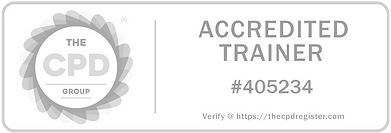The Aevitium Integrated Risk Management Framework™
Aevitium LTD’s Integrated Risk Framework connects leadership, governance, culture, and systems into a unified structure that supports clarity, constructive challenge, and accountability. It is designed to unlock both strategic and operational management of risks, driving value creation, effective risk taking, and optimisation of resources across your organisation.
Expert-led, boutique advisory trusted by financial services, fintechs, and purpose-driven organisations.
Your Integrated Risk Journey at a Glance
Our framework guides organisations through three phases — Risk Foundations, Risk Operations, and Continuous Improvement. Each step builds practical alignment between risk activities and business performance, ensuring decisions are informed, timely, and strategically connected.


Explore your Integrated Risk Journey by clicking on each phase below.
Clarify the vision, strategy, and governance of your risk function. Establish a clear purpose, align priorities with organisational goals, and simplify frameworks so leadership can focus on what matters most.
Services:
-
Define Risk Vision and Mission
-
Define Risk Strategy and Objectives
-
Review and Assess Risk Governance and Leadership
-
Simplify Risk and Compliance Frameworks
What You Will Get:
A clear sense of purpose for your Risk function, stronger engagement from the board and executives, and simplified frameworks that enable focus on what matters most.
Operate with
Clarity!
Integrated risk management is not about adding layers of process — it is about making risk meaningful at every level of the organisation. When risk is aligned to strategy, decision-making becomes clearer, accountability stronger, and transformation more sustainable.
“The power of risk lies in how it shapes tomorrow’s choices, not just how it explains yesterday’s results.” – Julien Haye
Proven. Certified. Trusted.





Integrated Risk Management
Outcomes and Case Studies
See how our advisory and consultancy services deliver measurable results in integrated risk management, strengthening governance, risk appetite, and decision-making.
Investment Manager
Partnered with leadership to reposition the Risk function from operational support to strategic partner. Outcomes included a clear vision and mission, stronger executive engagement, and alignment of risk activities with the firm’s strategic objectives.
Global Bank
Led a comprehensive RCSA transformation for a multinational financial services firm. Outcomes included regulatory approval, integrated risk insights, and a stronger risk-aware culture embedded across the organisation.
FTSE100 Financial Conglomerate
Supporting a group-wide control improvement programme as part of regulatory remediation. Outcomes include a clear path to “green,” a control environment connected to risk strategy and appetite, and greater clarity on the transformation path and communication.
Coming Soon
Pricing and Engagement Models
We believe in transparent and flexible pricing for our integrated risk management services. Engagements are tailored to the scope, maturity, and objectives of your organisation, ensuring access to senior expertise without unnecessary overhead. Whether you need a focused project, ongoing advisory, or fractional leadership, our models adapt to your needs.
Note. All engagements are delivered directly by senior risk and resilience experts, providing practical insight and proven leadership experience at every stage.
Project-Based Engagements
For specific initiatives such as risk framework development, governance reviews, or control optimisation programmes. Pricing is based on agreed scope and deliverables, not time spent. Each project is scoped and confirmed upfront.
Retainer Advisory
For organisations that want continuous access to senior risk expertise. Includes regular consultation, board reporting, and oversight tailored to your priorities. Pricing is day-rate based, calculated on time spent.
Fractional Leadership
For organisations that want continuous access to senior risk expertise. Includes regular consultation, board reporting, and oversight tailored to your priorities. Pricing is day-rate based, calculated on time spent.
Engagements are set on a quarterly subscription model, based on scope of responsibilities rather than hours. This can include developing policy frameworks, maintaining risk registers, and providing ongoing advisory support to leadership.
Training Programmes
Delivered in partnership with organisations such as Risk.net and IFF, as well as bespoke in-house training. Pricing depends on channel, format, and participants.
Open courses are priced per delegate, while in-house and client-specific sessions are scoped as a package.
Frequently Asked Questions (FAQ)
1. What is the Aevitium Integrated Risk Management Framework™?
It is a 9-step model that connects strategy, governance, culture, and systems into a unified approach. It helps organisations align risk with purpose, decision-making, and long-term value creation.
2. How is Integrated Risk Management different from Enterprise Risk Management?
ERM focuses on oversight and reporting. IRM goes further by embedding risk into daily decisions, integrating strategic and operational levels, and enabling real-time adaptation.
3. What benefits can organisations expect?
Clearer alignment of risk with strategy, stronger governance and accountability, more effective controls, and a culture that supports informed and timely decisions.
4. Who is it designed for?
Boards, executives, CROs, and leadership teams in financial services, fintechs, and non-profits that want to strengthen decision-making and connect risk with strategy.
5. How do we get started?
Begin with a diagnostic to assess your current maturity across governance, capabilities, and decision-making. From there, we tailor a roadmap using the Integrated Risk Framework™.
Ready to Transform Your Risk Management?
Reach out today to explore how our Integrated Risk Framework™ can help you align governance, strategy, and culture into one coherent approach. At Aevitium LTD, we provide expert-led support to strengthen decision-making, connect controls to risk appetite, and build a resilient organisation ready for the future.
.png)